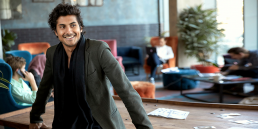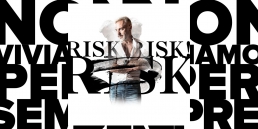Behind The Collective Co-Living
There is a new Miami co-living community coming to Wynwood. The Collective, a London based global co-living community started by Reza Merchant. In 2010 Reza was a 21-year-old in London and was having a hard time finding a decent place to live that was also an affordable price. As someone who was well-traveled and inspired by music and communities from around the world, Reza saw a massive need for affordable housing that could also give people a sense of community and the flexibility to travel.
It was then that he decided to start a company to help like-minded young people find great places to live.
Today, The Collective has developed nearly 9,000 residential units and created a global platform with a network of living spaces. They’ve raised $850 million and have locations opening up in New York, Chicago, Miami, Berlin, London and Dublin
In this interview, I asked founder and CEO Reza Merchant to tell us more about The Collective, including its humble beginnings and his own entrepreneurial skills.
How did you start The Collective?
We started with very humble beginnings. I took a small loan with a couple of friends and setup a brokerage that was designed to connect students with properties and really improve that service.
A year later we started offering our own four to six-bedroom houses and all-inclusive serviced living. From there we took on about 20 houses in the same way and quickly scaled up to 20 to 50-unit projects. I noticed a real lack of supply and excessive demand in the market
We did our first house in May of 2011. Then we moved up from 6 bedrooms to 20 bedrooms. In 2012, we completed a 50-unit project entered a new chapter as The Collective, focused on purpose-built places. In 2017, we opened The Collective Old Oak, the world’s largest co-living building.
It was all about creating the optimal living experience for our community and our members, centered around community and convenience.
It became even more obvious to me at that time that cities are becoming increasingly lonely and increasingly isolated.
Technology, with all its benefits, is still making people increasingly isolated, and previous forms of community such as religion were becoming less and less relevant to people.
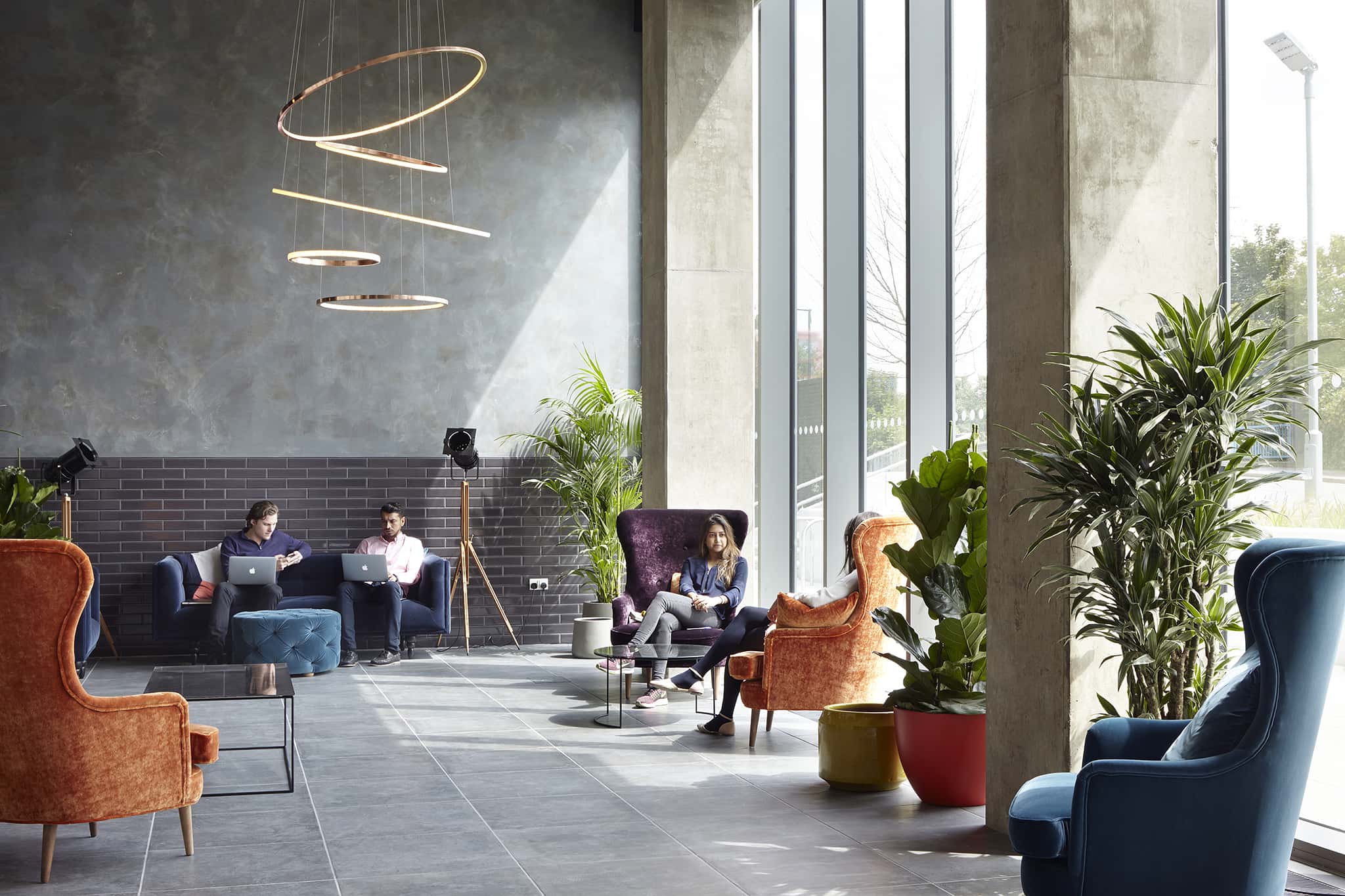
What is your vision for The Collective?
We are building a solution for homes in the world we live in today, which is very much a global world. People are no longer citizens of one country, they are citizens of the world. The use of technology and cheaper travel is allowing people to live in multiple places without being tied to one place.
The biggest barrier to doing this is having a home. Traditionally, home is one place. You need to sign a lease for at least 12 months, it can be ridiculously expensive, and might be of poor quality.
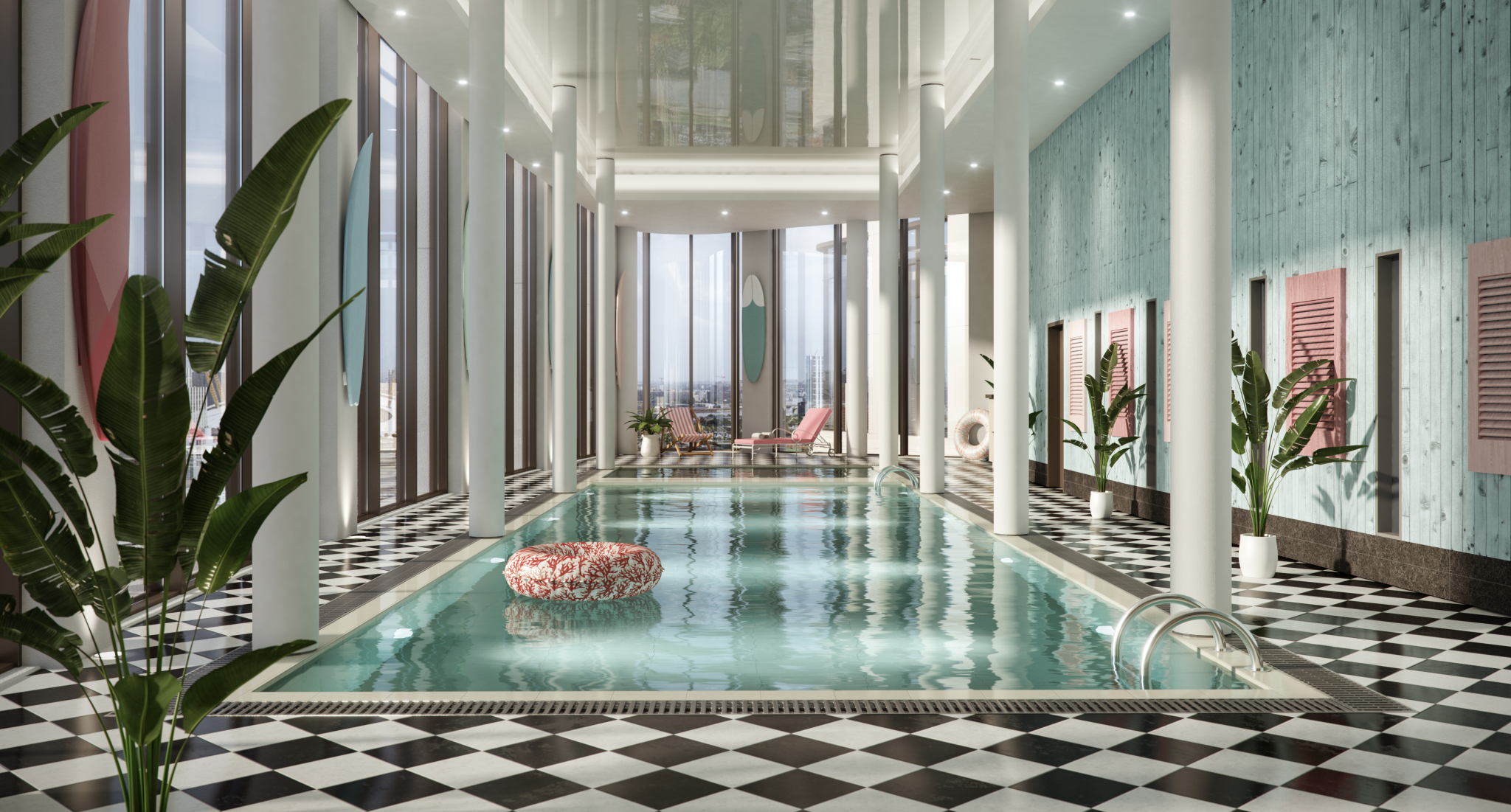
We believe home is not just about having a roof over your head, it’s a place where you have community and a sense of belonging. From the moment you are born until the moment you die, human connection is an important factor for all people on this planet, and that’s why we focus so much on community and bringing people together and really creating a feeling through our programming and cultural events.
Are the units shared or private, and what are the leasing terms?
We have a range of units. Some are individual studios, and some are individual rooms with shared elements.
Flexibility is the most important thing for us. The whole concept of a 12-month lease is completely outdated. People’s lives don’t run on 12-month periods anymore. We offer everything from one night to one year.
And even if you go somewhere for just a few days, you still want it to feel like home. People are sick and tired of checking-in to boring hotels where they feel very lonely.
Why did you choose Wynwood for a Miami Co-Living community?
In Miami, such a big focus for us is around the cultural programming, the music, the art. A lot of that stems from my experiences at music festivals in the last 10 years. I’ve seen the kind of impact music has had on my life. I’ve traveled to some amazing places and made some amazing friends.
We took what rave culture stands for in terms of acceptance and people not judging one another and appreciating people for who they are, and we made it the cornerstone of our culture. This is what we want to inspire our members.
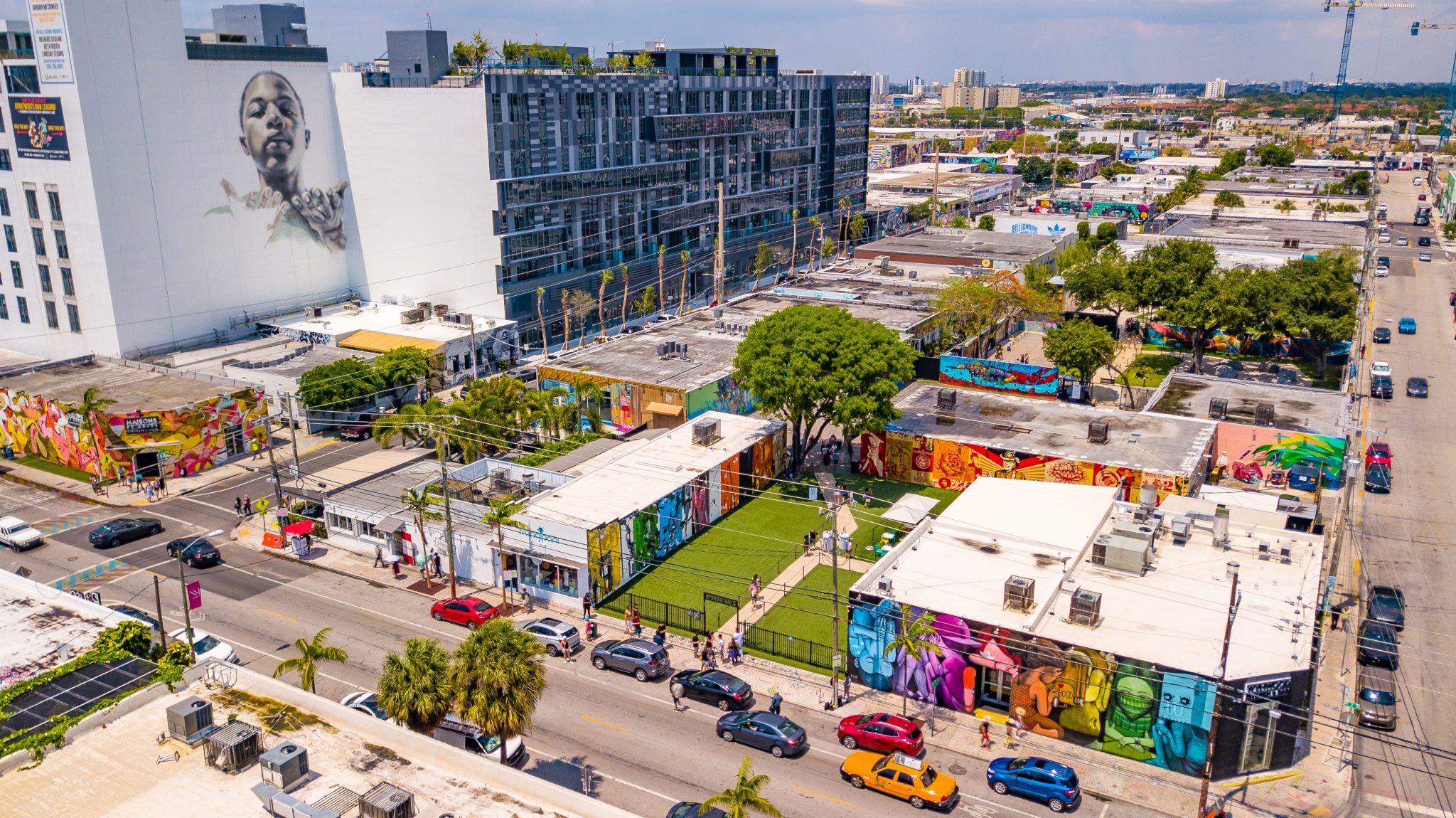
I was in Wynwood for the first time last year and completely fell in love with the creative energy, the artwork, the coffee shops, bars, and so much diversity. It has a real soul and it reminded me a lot of Shoreditch 12 years ago or Williamsburg in NY, except that it’s sunny all year and is only 15 minutes to the beach, so it was a no brainer.
I believe that as the world gets more mobile and global, people will gravitate to places that are accessible and culturally inspiring, and Wynwood has both of these characteristics.
We also want to be in places that have interesting local communities and people that we can provide space for, where they can create and inspire, so we are really looking forward to tapping into the local community that is already there. Rather then creating something that alienates them and outpaces them, creating space for them so they can continue to thrive and create some amazing things.
How many units are you building at the Wynwood location?
Several hundred units, tbd based on final design.
There seem to be a lot of new residential developments going up in Wynwood , are you concerned about local competition?
What we are creating is not just residential, it’s got many more layers and depth to it. We don’t see ourselves competing against the traditional residential developments, which are just regular apartments that are expensive, don’t really have much soul, and are not focused on creating community and a sense of belonging for people.
What is your strongest skill as an entrepreneur?
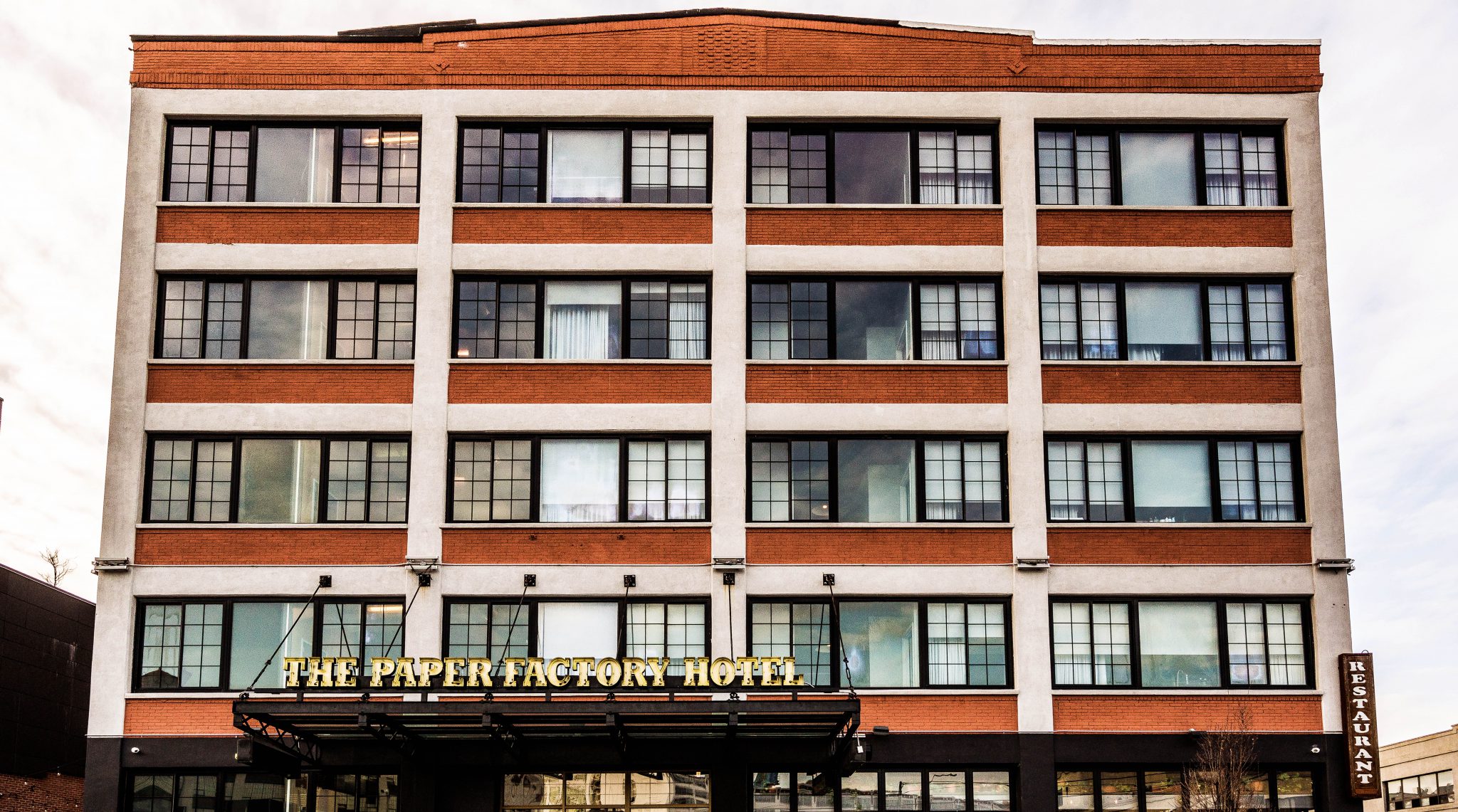
Having the awareness of understanding what people need from a culture, community, and convenience perspective, and being able to marry that with something that is financially viable.
I think everyone realizes that the world is becoming more lonely and that we will need to create places that will have a strong sense of community at a price point that is accessible. But then being able to turn that idea into a business, when its something that no one has done before, and you have to overcome regulatory hurdles, financial hurdles and all kinds of other hurdles.
Since its never been done before, people can’t always see the vision. I think we have managed to overcome that and merge the two.
What is the biggest lesson you learned from a mistake?
The importance of planning, to plan and outline your vision. When you are small, you can get away with doing things gowk, but when you are large you have a whole army of people that need to know and understand what is going on, and that requires planning and thinking ahead.
Giving people as much context and explaining your thought process of why you do what you do is so important. We are not creating just a regular business for everyone that works in The Collective. It is really a big part of their lives, it’s really a calling. People are here for a much deeper reason then just a job, so over the last few years I’ve learned the importance of giving people the context and to explain why you are doing what you are doing.
What book has had the greatest impact on your life?
The 7 Habits of Highly Effective People. It taught me a really valuable lesson to take responsibility for your actions.
It’s very easy when something doesn’t go as planned to blame an external factor, but those external factors are out of your control. The book talks about your circle of influence. You should really be focused on things that are within your circle of influence, by having the attitude that you are in control of your own destiny and your actions are the sole driver to achieving what you want to achieve. That gave me a real sense of self-belief and responsibility, rather then feeling like I am beholden to other people and other factors to achieve what I want to achieve.
Entrepreneur; social media star; DJ; producer; Gianluca Vacchi is a man who triumphs whatever he puts his hands to. His athletic, hedonistic, daredevil playboy antics on social media made him a star whose charisma people were naturally drawn to, and after amassing an enormous following he decided to follow his dreams in music. Having made his passion and commitment for music clear by announcing the launch of his DJ and production career, he has quickly become a major force in the music industry—and he’s only just getting started.
I wanted to know more about what drives him, how he got his start, and where he sees himself moving forward. It’s my pleasure to share this exclusive interview with global entertainer and social media star Gianluca Vacchi.
What were you doing before becoming a global entertainer on social media?
I was an entrepreneur. Even now, I’m still an entrepreneur, but it doesn’t absorb all my time anymore like it used to. Once I stopped finding inspiration in the work I was doing or learning anything new, that was when I decided to walk away from being a full-time entrepreneur.
Did you work from home or an office?
No, I wouldn’t work from an office. I always worked from my cell phone. It’s like those kids who can’t sit still at school, you know? That’s me. For me, it’s the same thing as trying to sit still in an office.
Recently you took on the music world and became a DJ. Is there anything else on your bucket list that you’d like to achieve or experience?
Oh yes. So many things, but I don’t even know what they are. The thing that keeps on fascinating me about my life is that I don’t know what I’m going to do tomorrow.
I’m open to everything. For example, I’d love to be an actor at some point in my life. I’d like to have as many experiences as possible. Once you’ve transitioned from one career or lifestyle to another, you can do it again and again. You’re more flexible and open to new ideas and opportunities.

Do you collect any art?
I am a contemporary art collector. It’s not the largest, but I have quite a collection. I started collecting art with the first money I ever earned. I’m very into activism art, including some works from Shirin Neshat and Travey Emin.
Shirin Neshat is an Iranian woman who started doing art to create awareness about the conditions of women in Iran. It’s very powerful.
Tracey Emin, is an up and coming artist. She was raped when she was younger and she makes art with blankets from hotels.
I also love photography.
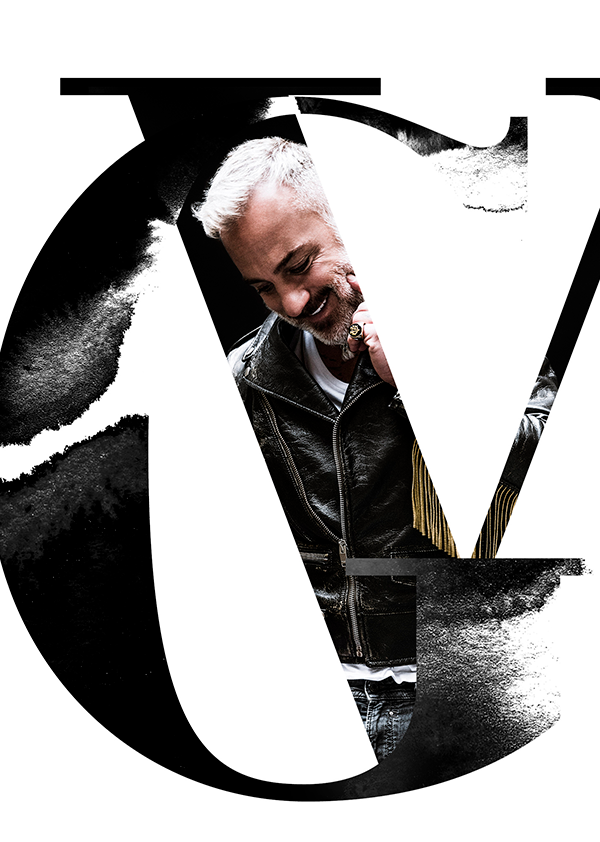
Who are the people who have had the biggest impact on your life?
There’s only one and that’s my father. When I was 16, I was watching businessmen like they were gods, but none of them were really role models to me; I didn’t identify with them. Only with my dad.
What was the most challenging moment in your life?
Probably when I started in business. When I was 24, I risked everything my father had. I borrowed from the bank 4-5 times my father’s net worth. I bought out the shares of my family’s company from my relatives who weren’t interested in the business.
At that time, the company wasn’t as big as it is today. Fortunately, at that time, bankers were still doing their job and financing ideas.
What was the biggest lesson you learned from a mistake?
You have to be calm and patient. Sometimes I made mistakes because I didn’t wait long enough. It’s very difficult when you’re a very active person and want to do new things every day. You just need to stay calm and wait for it. You can’t speed up the course of the events too much. But I still have the same problem now, because I’m older and don’t think I have enough time.
How do you define happiness?
Being aware that I’m using all of my talents. I don’t want to waste time. I want to use all the talents that nature has given me. Even if they’re a lot or a few. I don’t know how many there are! I just need to know that I’m not wasting time and using those talents to make my life great.
How do you want to be remembered?
As a person who had the courage to approach things unconventionally. I hate anything conventional.
As an entrepreneur, what is your greatest skill?
Being able to see things from a different angle. Very often entrepreneurs will hire consultants to show them things from a different angle, because they need that. So, my skill is that I am already able to see things in an unconventional way – from a different point of view. Every time I do something, I ask myself, what is the conventional way for how this should be done, and for sure, I’m doing the opposite!
What kind of advice would you give to any young entrepreneurs starting out in their careers?
 Try to understand that everything is possible and you only live once. Don’t be scared of risk. Risk, risk, risk! We don’t live forever. If you are convinced, jump! Leave what’s certain for what’s uncertain if you want to achieve something. Nowadays, young people are scared. At least in Europe, they’re speaking about crisis, risk, and problems. They
Try to understand that everything is possible and you only live once. Don’t be scared of risk. Risk, risk, risk! We don’t live forever. If you are convinced, jump! Leave what’s certain for what’s uncertain if you want to achieve something. Nowadays, young people are scared. At least in Europe, they’re speaking about crisis, risk, and problems. They
’re scared and very spoiled. The previous generation achieved a high economic level, so this generation is living off what their father and grandfather earned. They have to take risks and shouldn’t be scared to do it.
You’re obviously in great shape. Is there a specific diet or lifestyle you live by?
No, I don’t believe in extreme regimens. The only advice I can give is to eat 5 or 6 times a day. Eat often and eat anything. Anytime you renounce something, that craving comes back stronger. But don’t exaggerate either. You want to live by something sustainable that you can manage your whole life. Therefore, it can’t be extreme. If I was training two hours a day and eating a strict diet, I’d only be able to do it for a month. Once a week though, I allow myself to exaggerate. For that one day, I eat everything as much as I want. Then the day after, I have more strength to renounce that food. The brain and body are connected. You have to keep your metabolism surprised.
You travel a lot. How do you maintain your workout routine?
When I travel to my houses, it’s no problem because I always have a gym at home. Hotels are no problem either, because they have gyms. When I get off a flight and people ask me if I want to rest, I say, “Of course, take me to the treadmill.” Some people retire at the end of the day by laying on their beds watching Instagram, but I’m on the tr
eadmill. Rest is also mental. If don’t feel that I’m doing my best to keep in shape, I won’t be happy, so I always do it – even when I travel.
Is there anything else we can expect from you?
There could be many things. I’m studying everything. I joined social media, because I noticed how the conventional dialogue of young people is changing. So, I said to myself that there’s room to become a global entertainer. You can expect many things. I have lots of things in mind.
For more on Gianluca Vacchi check out his website or follow him on Instagram
Image designs by Daniel Bonavita Instagram @DanielBonavita
November 26, 2019
How Smuggling Coconuts Become A Viral Success
Dani Zighelboim and her brother Mike came up with a crazy idea to load their suitcases with coconuts from El Salvador and smuggle them into the US. Through their Instagram success, they have been able to partner with the most prestigious luxury hotels and restaurants including Ritz Carlton, Soho Beach House, Fontainebleau Miami Beach, among many others. Building on their brand’s success, they recently launched their own rum, of which she always keeps a bottle handy so if you run into her, be sure try some, you will want to keep the bottle.
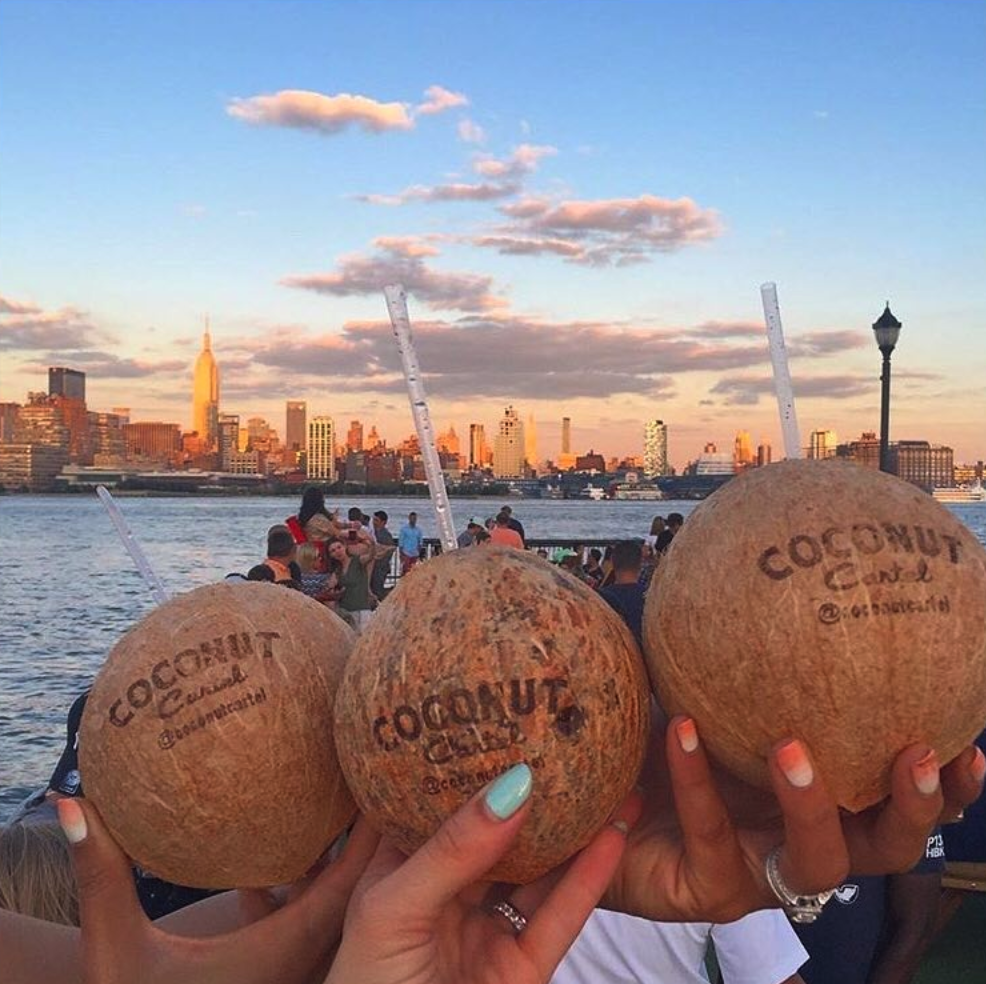
Tell us about the moment you decided you are going to start a coconut business?
It was around 2013, at the time when coconut water was starting to become very popular. My brother and I happened to be in El Salvador visiting my dad, it was a hot day and our friend gave my brother a fresh coconut. A lot of people don’t know this but coconuts have a thin membrane at the top that you can poke a hole through to get to the water. The taste was so refreshing and the presentation so beautiful, we wondered why we did not get to experience this back home in Miami. On that trip,
From there we hatched this idea that maybe we can start a business selling these fresh coconuts. So we filled up our suitcases with coconuts and smuggled them back into America. We were the first ones to brand coconuts, then the trend just blew up from there.
Did you have any business experience prior to this?
None actually. I was in business school at the time and my brother worked in the events industry but nothing major like this.
You bring a few suitcases of coconuts into Miami, how did that become a real business?
We were getting tagged and mentioned in posts on social media left and right. People actually wanted to be featured on our page on the beach with their coconuts. The amount of attention we were getting on Instagram really helped launch us into becoming a recognizable name and then repeat orders. A really big step for us was when we were selling to The Soho House in Miami Beach. Celebrities were there all the time and my brother formed this relationship with Drake. Anytime he’s in Miami we get him a crate of coconuts or some rum.
As far as growth, what was the biggest challenge transitioning from smuggling suitcases and selling out of the trunk of your car to where Coconut Cartel is today?
The supply chain was probably our biggest challenge. First, we had to find coconut farms that only utilized the palm trees for shade and not the coconuts. They would have no use for them so we would go in and convince them to sell them to us. We’d have to go in ourselves and harvest everything. It got really hard at times, managing a team of 30 remotely wasn’t the easiest thing in the world.
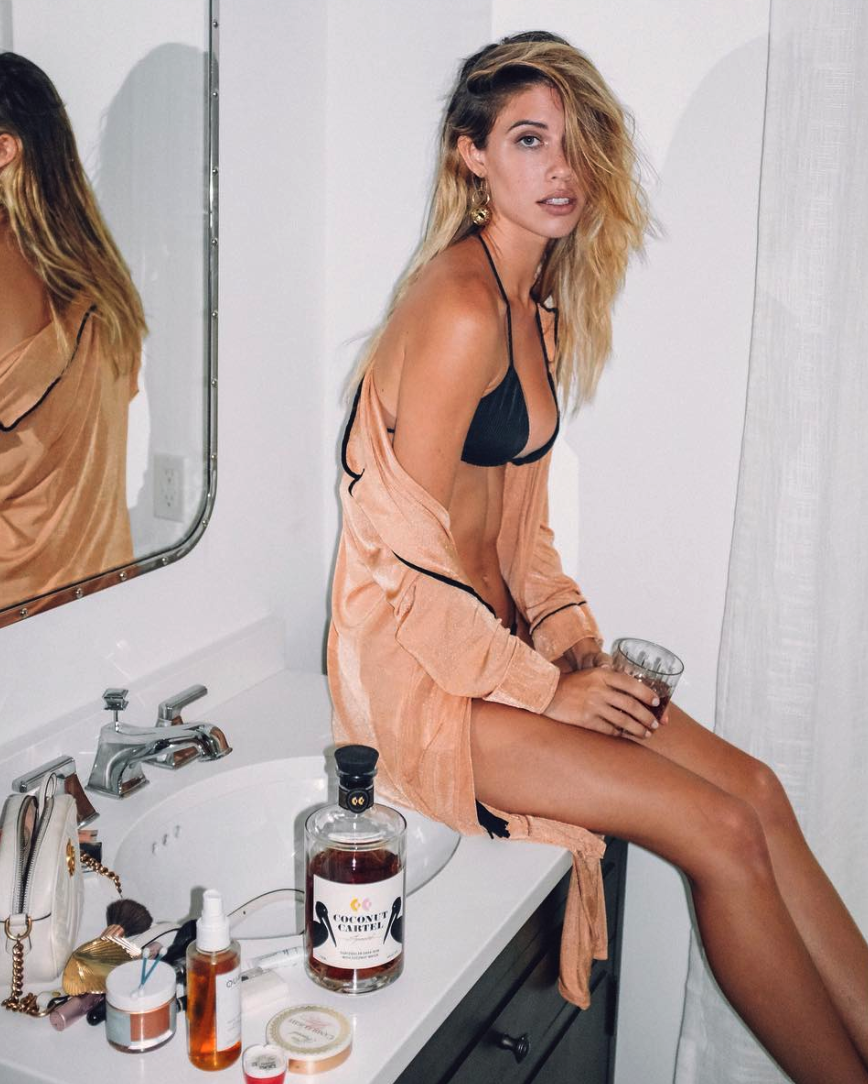
What’s the difference between coconuts here in Miami and the ones from El Salvador?
The issue with coconuts here started in the 1970s when lethal yellowing was a huge problem. Today, there is no uniformity in coconut farms which makes it difficult for harvest. Sometimes they’re sweet, sometimes sour, sometimes there’s no water in them and you can’t sell them at all.
Another thing is the breed of coconuts in El Salvador, they’re what’s called a Panama tall. This species has a lot of meat and a lot of water in them. They were planted about 60 to 100 years ago by Almond Joy. It’s kind of like wine, it all depends on the breed.
How many states are you in operating in right now?
We’re limited in terms of where we can go because of the perishability. We made it all the way up to Montauk. Now we have a local partner here in Miami, he handles everything from the harvest to the final product. The next step for us was to come up with something that had the same flavor profile but wouldn’t go bad as quickly. We had two options: bottle the water or make it into a spirit. As you can guess, we decided to go with the spirit and that’s available in Florida, New York, and California.
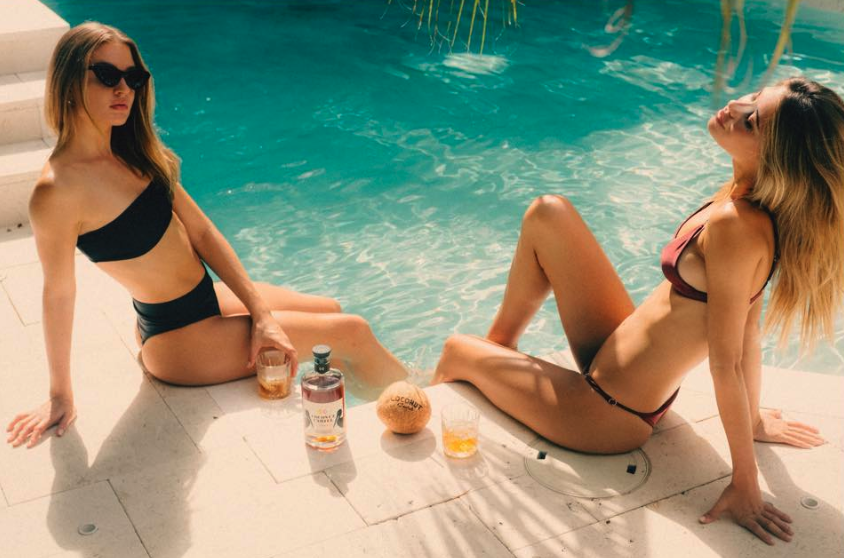
What did it take to create a rum from scratch?
We had a really rough time in the beginning. Once we decided that’s what we were going to do, the next two years was spent tasting different Guatemalan rums all at different ages. Once we picked the age we liked the next step was adding the coconut profile to it without it tasting like something else. It took about a year before we found the perfect combination.
That’s all just one side. There was a whole design side to all of this too. It took about 8 months for us to finalize a design between my brother, myself and a few designers. We wanted to celebrate Miami and it’s history but not make it seem cheesy.
In any business, you’re bound to have mistakes, what was a lesson you learned from one?
I would say take care of yourself first. I was fresh out of college when we jumped into this and I let myself burn out too quickly. When you burn out you tend to let people influence you and your decisions. I never make decisions on the spot anymore, I like to sleep on it and really think about it.
Speaking self-care, how do you keep up with your personal wellbeing?
I know it’s trendy but I believe in practicing yoga and meditation. It really helps just keep everything balanced. My fiance and I will sometimes do intermittent fasting and that also keeps us really healthy.
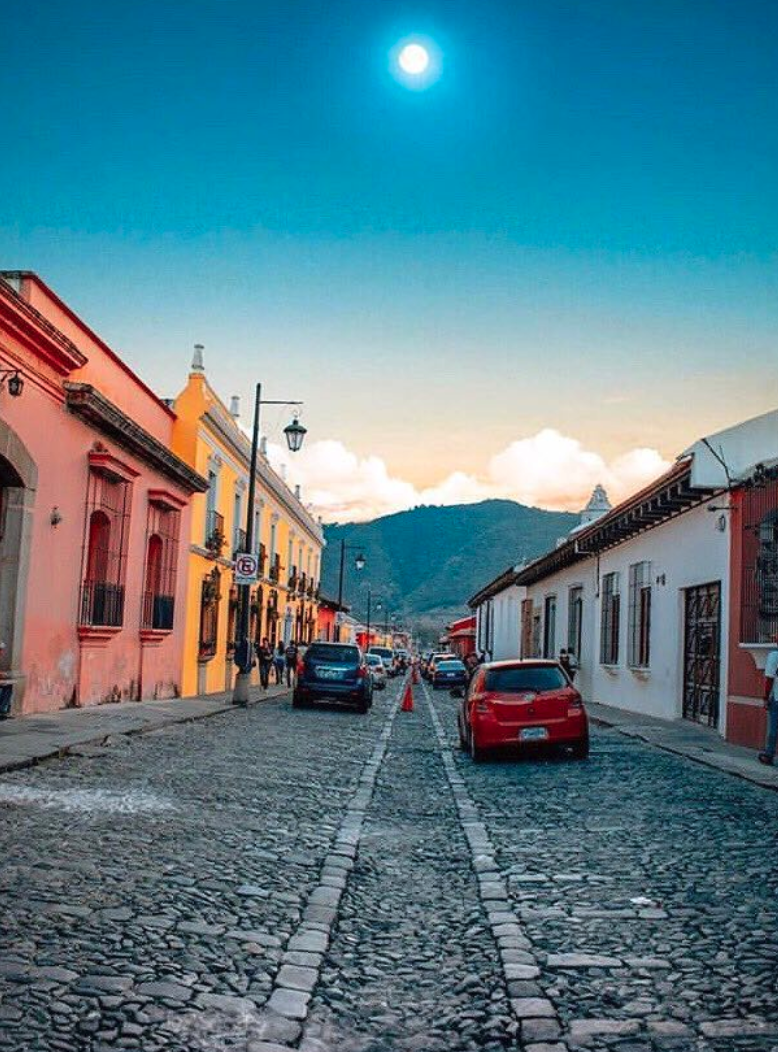
What do you consider your strongest skill as an entrepreneur?
I’ve learned to turn my anxiety into sort of a superpower. I can multitask better and really think about all the aspects of the business. I had to do everything myself from the beginning, so I’ve learned to be a jack of all trades.
What’s your biggest challenge?
Probably accepting when things go right. When things go right all I can think about is what might happen to make it all go wrong. So I’m learning to deal with that better.
How is it being a co-founder and business partner with your brother?
We are at totally opposite ends of the spectrum. I’m an organized type A, and he’s the unorganized social butterfly. Being different people really helps us to come together and work as a team, plus we have our family helping us along the way. It also makes communication easier because we can say it straight to each other and not worry about hurting each other’s feelings.
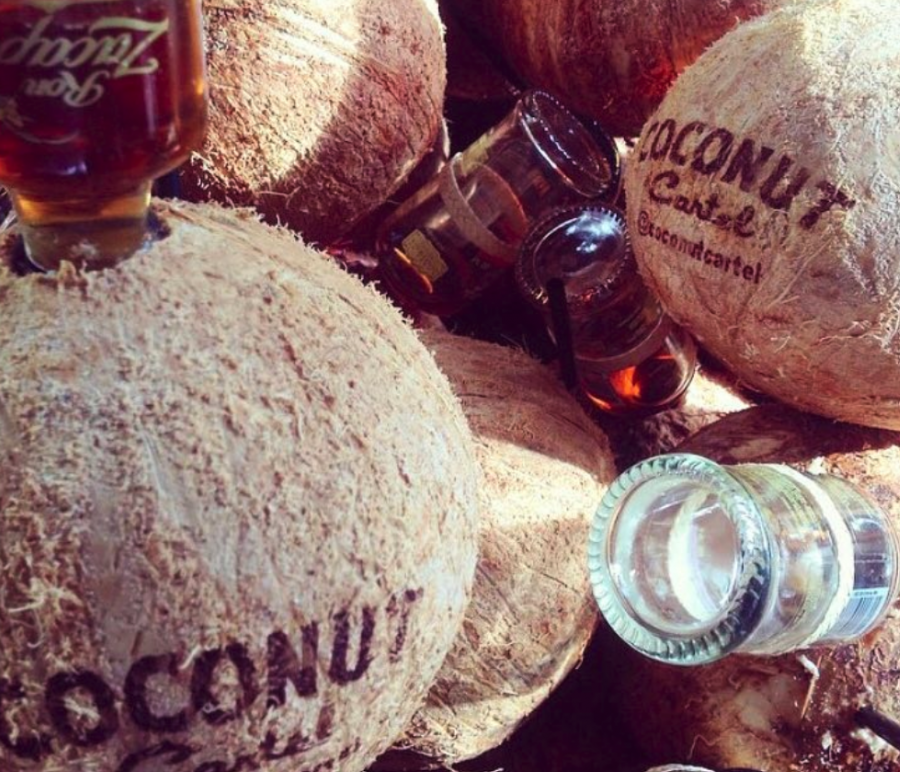
How do you feel being based in Miami benefits or challenges a startup?
Raising capital is definitely a challenge. Anyone who’s an entrepreneur here can tell you that. We had to go to either New York or California in order to raise the capital. The benefit of Miami though, is that people are willing to hear me out here. I’m a local so others are going to want to try my product as opposed to someone across the country. It’s really a neighborhood, word of mouth kind of thing.
Did people from New York and California take you more or less serious being from Miami?
Most people we raised our capital from tried our product while in Miami, so when we went to them they were right on board. People from New York and Cali like to take risks. If they love your product and can add some value to it, they’re willing to invest in just about anything.
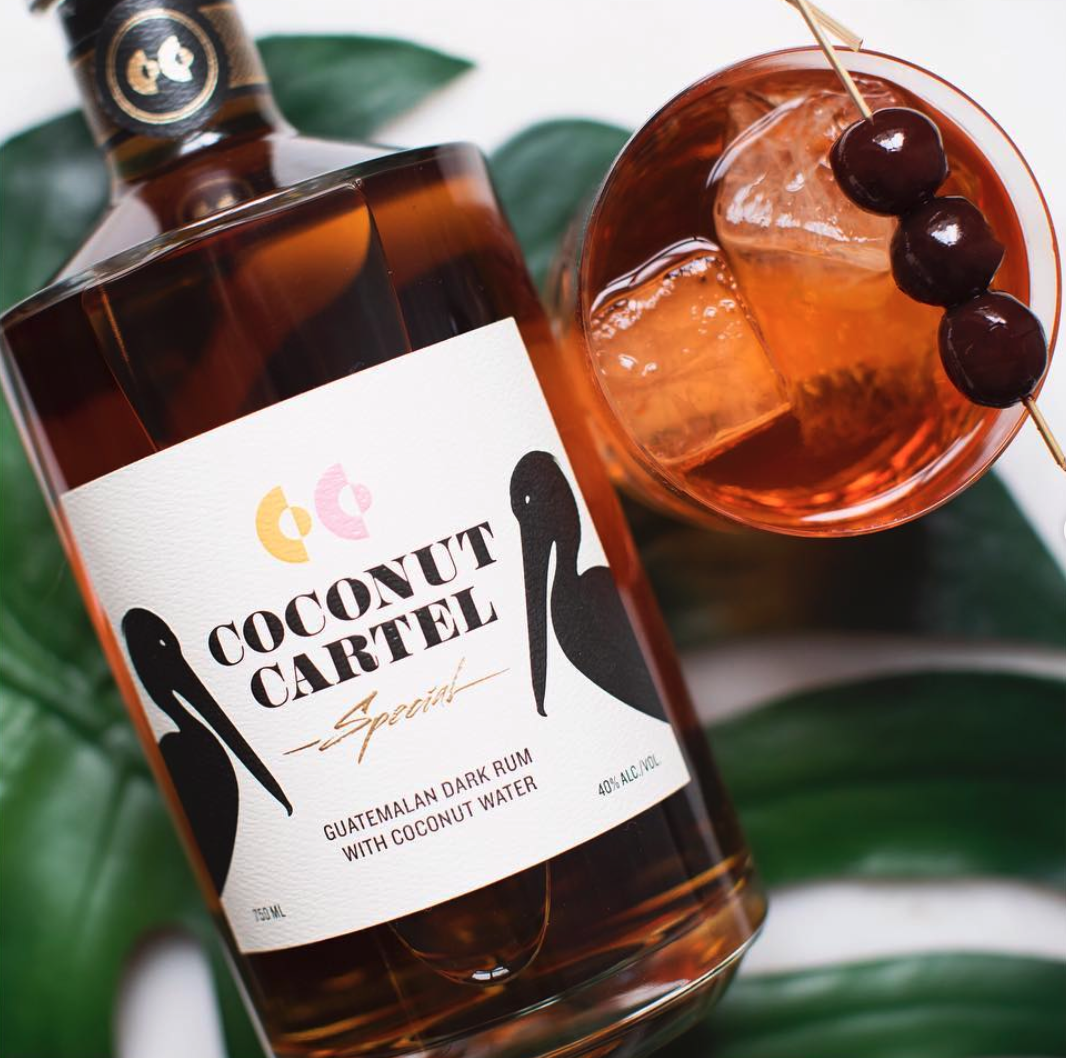
Social media is such a big part of businesses today, what are some of your tips that you can share?
With the coconuts it was easy, with our rum it’s a little harder because people don’t just walk around with a bottle of rum in their hands. For us, it was all about brand positioning. We wanted to convey this sexy brand so we made our Instagram reflect that. It’s all girls on the beach, coconuts, and rum. For any brand, positioning and where it’s at is a really important part.
The culture in Latin America is a lot different than it is here. There you buy a bottle with your friends and just drink it, here you don’t do that. What we try to do is promote it so people will buy the rum and just drink it. Whether they’re with friends or on a boat.
What’s the best advice you’ve ever received?
When I interviewed my best friend’s dad in college, he said that even when you don’t have anything, be generous. When he was backpacking through Central America he would make money by taking polaroids of people then give that money away to someone who needed it more than him. My brother is very much like that, he’d give you the shirt off his back if you needed it.
“Even when you don’t have anything, be generous.”
What book are you currently reading?
Right now, I’m reading Andre Agassi’s autobiography. With big names, you don’t necessarily know what’s going on behind the scenes, so it’s great to read about what they’re going through. I love memoirs and autobiographies because you get to see behind the curtain. It’s one thing to think about your own struggles but when you read about other people and their struggles it gives you that extra motivation to keep going.
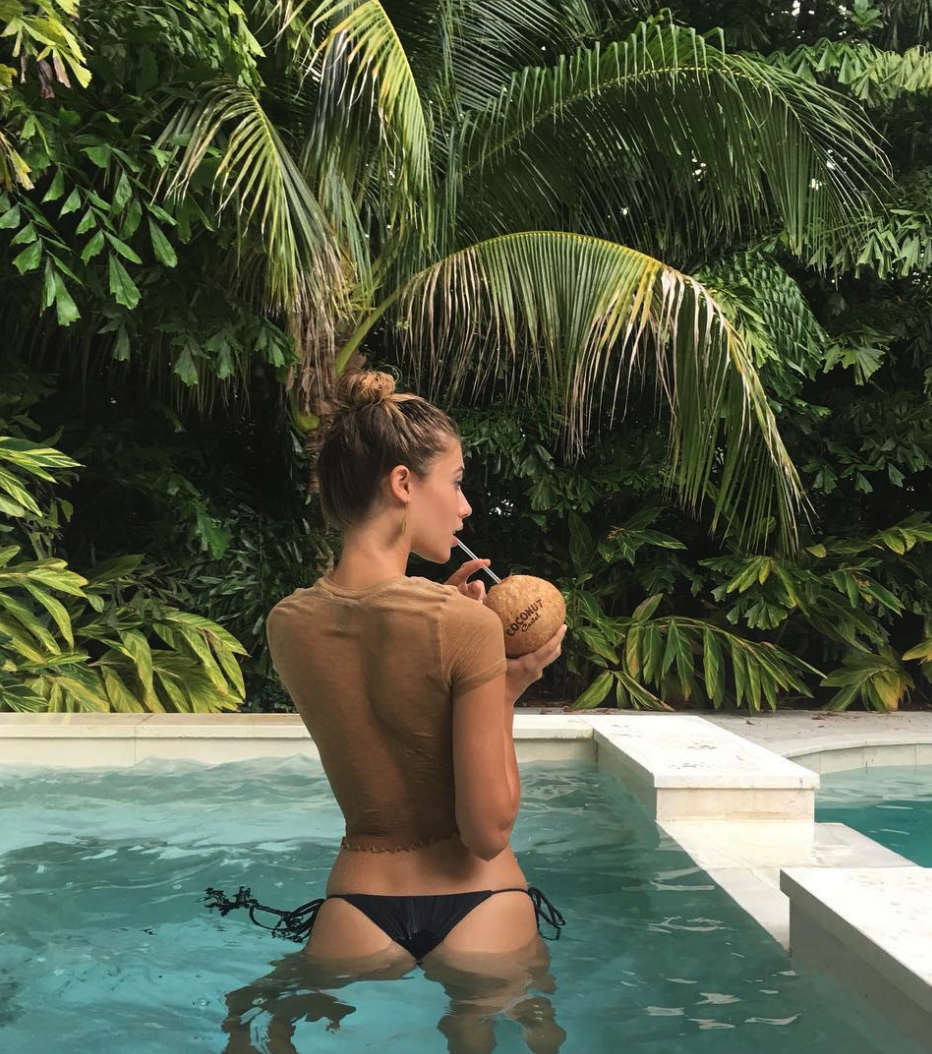
Are there any apps or programs that help you manage your business or day?
I’m a big calendar user, I even put reminds to email people back in there. Insight Timer is something else I use to chill out and meditate. Instagram is a huge one but that’s more of my brother’s thing.
Lastly, how do you define happiness?
I believe being at peace with where you are and not feeling like you need to run somewhere else is how you find your happiness. I’ve never been happier than I am now living in Coconut Grove. It was always, ‘I can’t wait to finish this so I can move here’, and now I’m here.
